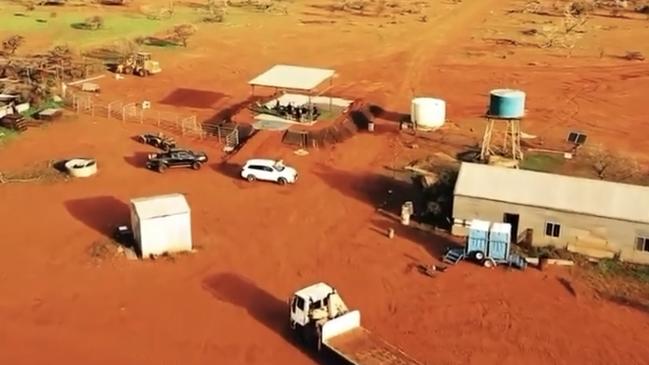
For years, tourists would come to a remote cattle station in Western Australia and pay to shoot powerful, .50-calibre rifles.
At $100 for three shots, it wasn’t cheap, but for many gun enthusiasts, it was a not-to-be-missed opportunity to legally shoot an extremely high-calibre, long-range weapon. One family came from Singapore and ordered 200 shots in advance – spending $6600 on ammunition alone.
Ella Valla Station, in the Gascoyne district southeast of Carnarvon, provided a letter helping tourists obtain a permit to fire the enormous guns, and established a 2.7km range with a large target at 1km and the opportunity to shoot feral rams and other vermin.
Western Australia’s decision to ban .50-calibre weapons killed the business overnight.
Target on Guns
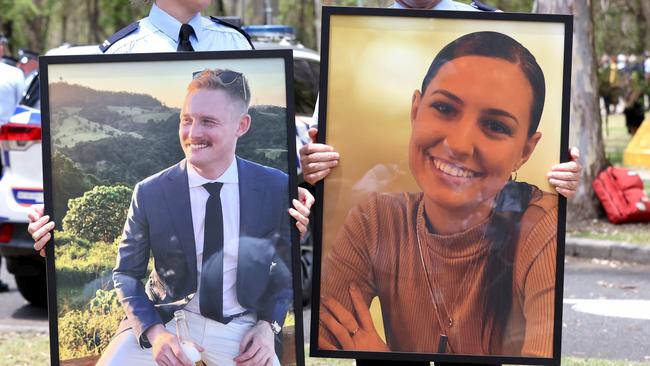
Extremists, crims, AVOs on guns register
A $250m national firearms register will have access to criminal records and family violence orders alongside details of guns and firearm licence holders.
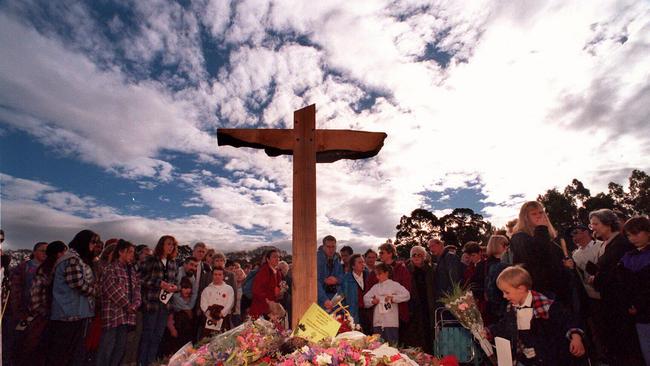
Firearms register win, as FBI nabs cop killers’ US contact
Twenty-seven years after it was first agreed following the Port Arthur massacre, Australia’s leaders sign a historic deal to introduce a national gun registry.
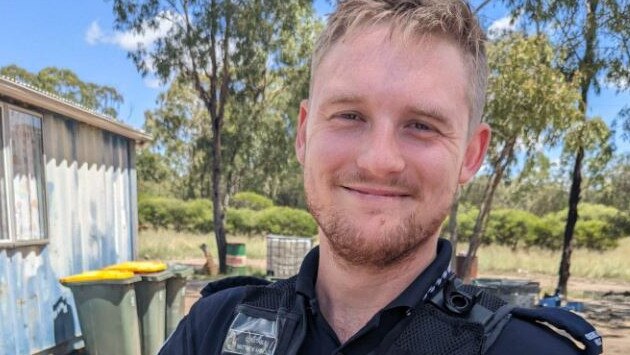
Nation’s leaders urged to do deal on gun register
Police and gun safety advocates urge premiers, PM to ‘show some fortitude’ on firearms ahead of the anniversary of the Wieambilla police murders.
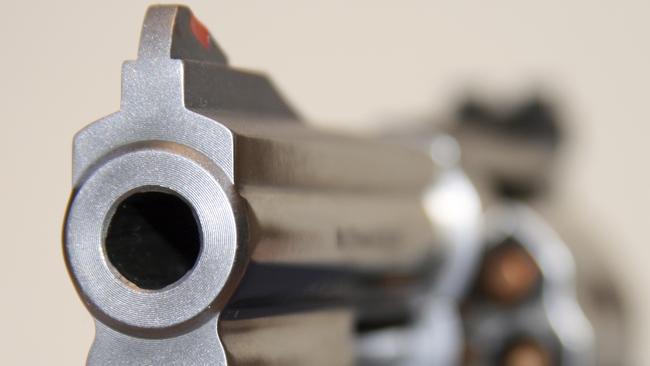
‘Red-flag cop-haters, sovereign citizens’ on firearm register
A national firearm register should include intelligence about licensed gun-owners who have been identified on social media as ‘police-haters’ or sovereign citizens.
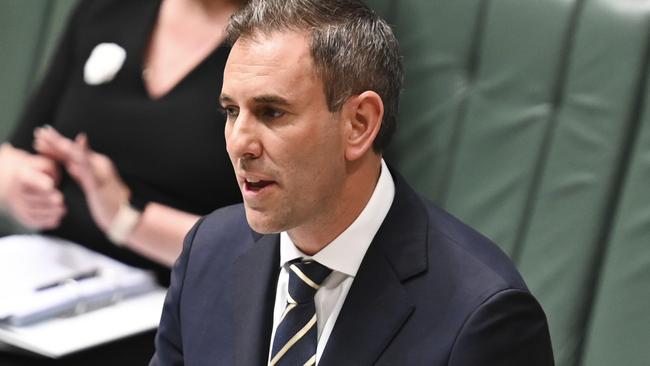
Fight over cash derails register
The national guns register has hit an 11th-hour roadblock with a blow-up between state and federal treasurers derailing plans to finalise a funding deal.
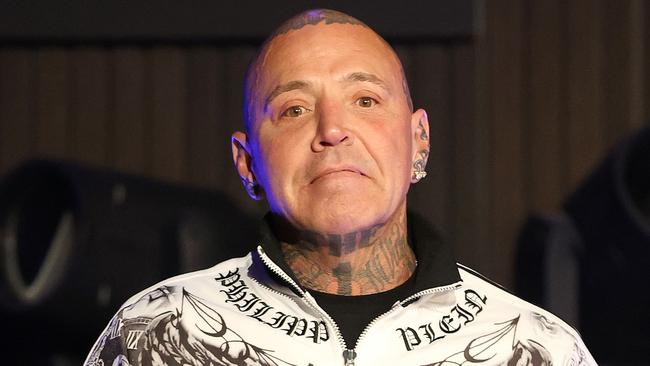
Delays give high-risk suspects 41-day start
No money, competing priorities: Victoria Police delays give high-risk suspects 41 days grace period before firearm prohibition orders are served.
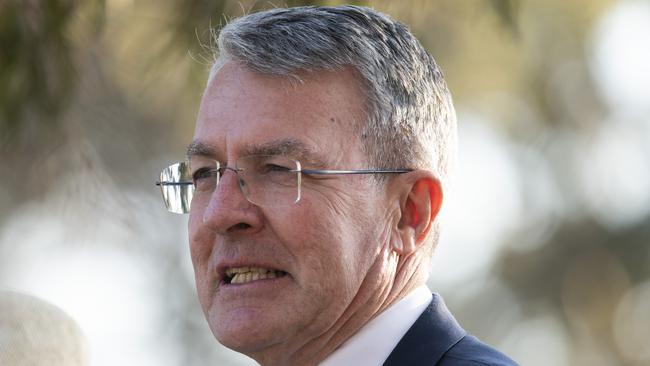
Firearms register ‘now within range’
Gun safety advocates say Australia’s state, territory, and federal governments have ‘never been closer’ to a deal on a national firearm register, 27 years after the Port Arthur massacre that first prompted calls for the database.
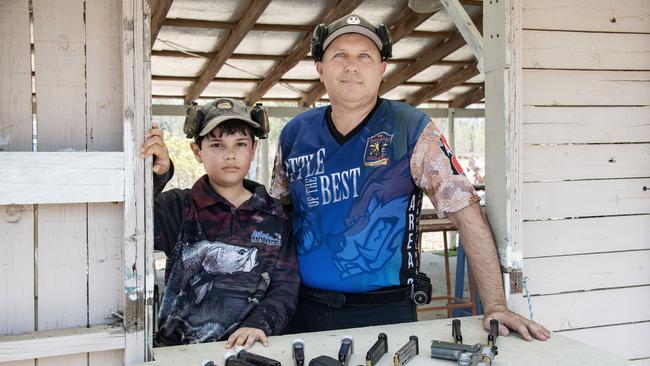
Young shooters aim for sporting success
Sport for some kids involves a ball or a racquet, but 12-year-old Quinn Coates-Marnane much prefers a pistol. The Cairns schoolboy is one of a growing number of children learning how to shoot competitively.
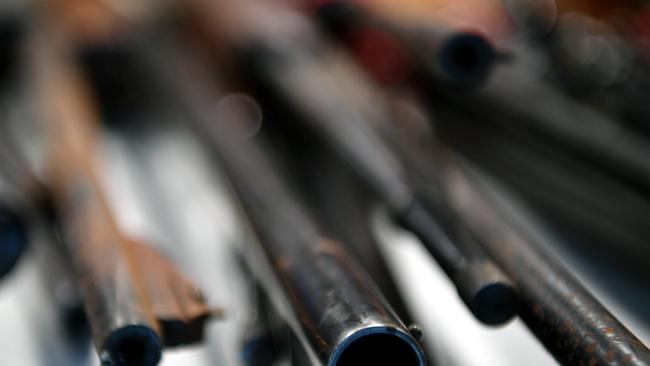
‘Ridiculous’: Police slam failure to act on guns register
An Australian-owned and operated company built New Zealand’s new national firearms database, prompting police advocates to ask why the same can’t be used domestically.
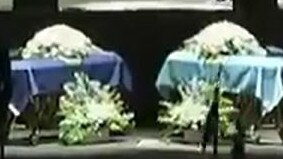
Victoria cries poor on guns, asks Canberra for help
Victoria has joined smaller jurisdictions asking Canberra for financial assistance to upgrade old state firearms registers to make them compatible with a real-time digital national gun database.
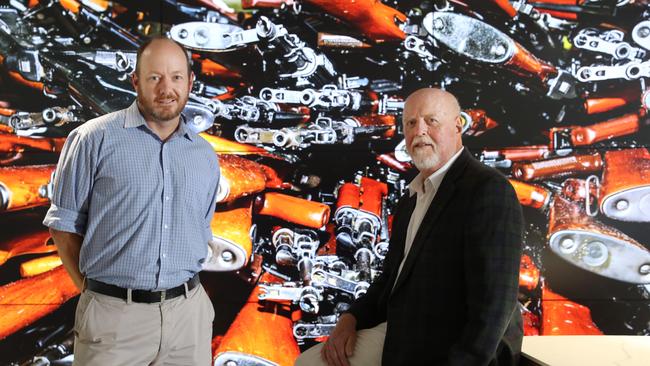
Aussie-made arms register controls guns abroad – why not here?
A low-cost simple-to-use system known as ArmsTracker is operational or being installed in countries across the globe. But its creators say it wouldn’t suit Australia because ‘they wouldn’t trust anything less than $2m’.
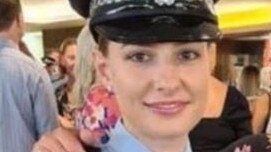
$30m slug to sign up to firearms registry
Smaller states and territories could be slugged with a bill of $30m each to join a national firearms register and are increasing pressure on the federal government to pay for the new digital guns database.
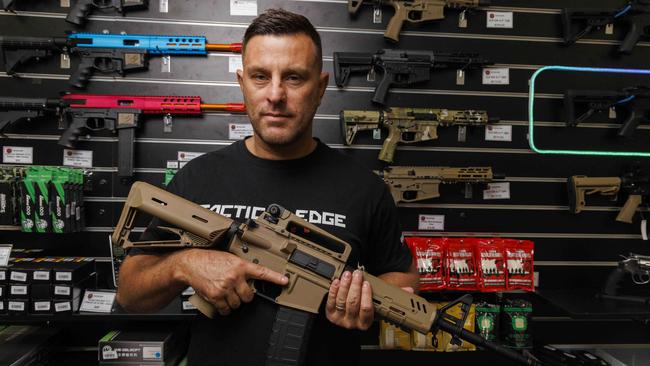
Pressure on state to ban replica ‘gel blasters’
Gun control advocates urge Queensland to follow the rest of Australia and ban gel blasters instead of labelling them toys.
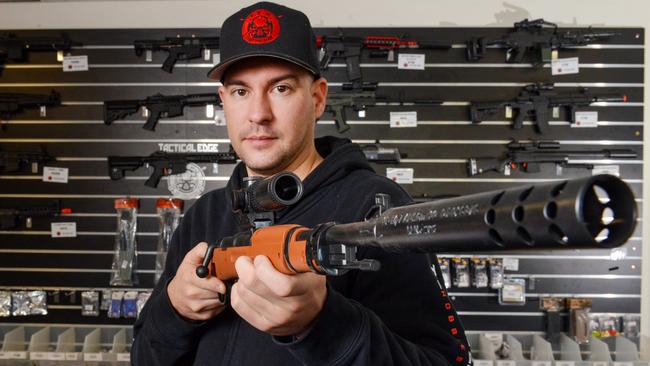
20 years’ jail for firing this ‘toy’? It’s ludicrous, blasts judge
In every other jurisdiction except Queensland you need a gun licence to wield this recreational weapon. Has the rest of the country got it wrong?
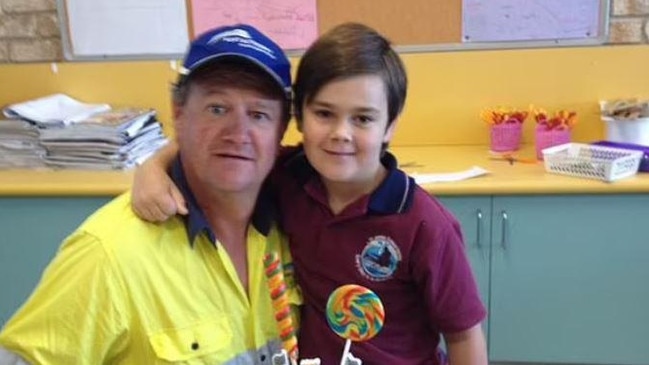
States resist health check for licences
Every state and territory except WA is resisting calls from coroners and advocates to introduce mandatory mental health checks before gun licences are granted.
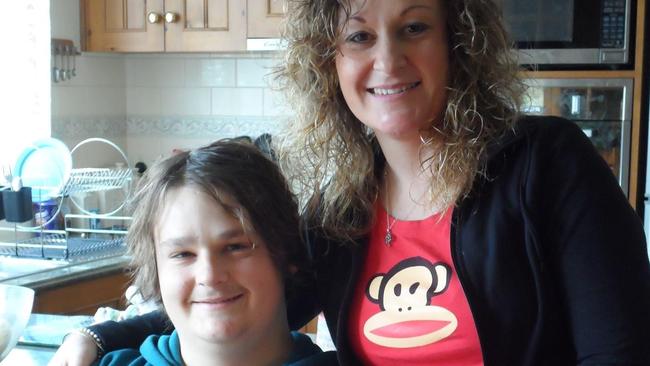
Grieving mother’s lament: Why did police let my son have a gun?
Just days after his 20th birthday, Robbie Lawrence unlocked his double-barrel 12-gauge shotgun from his father’s gun safe, drove to a remote bush track in regional Victoria, and killed himself.
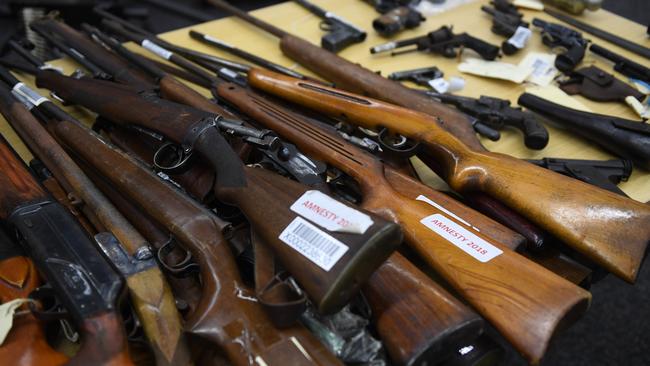
Legal guns near four million in Australia
The number of registered guns in Australia approaches four million for the first time, but ownership rates remain low, with a 48 per cent decline since the National Firearm Agreement in 1996.
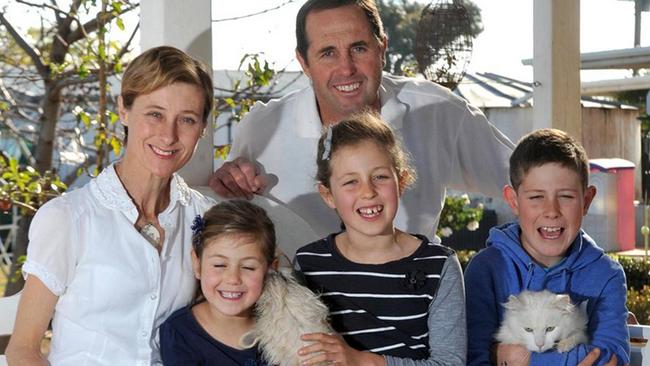
The forgotten victims of legal guns
Children, grandchildren and partners are the main victims of homicides carried out by licensed shooters, as lawful gun owners turn their registered weapons on those to whom they are closest.
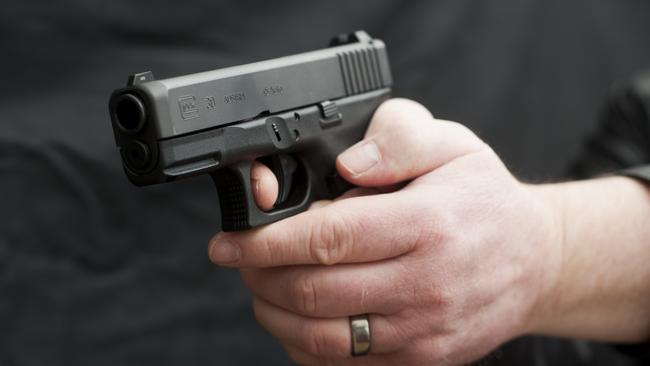
Coroners warn on shooting range suicides
Most of the nation’s shooting ranges are not required to install bulletproof barriers or lifesaving tethers for guns used by unlicensed shooters, despite coroner warnings after the suicides of at least 11 people.
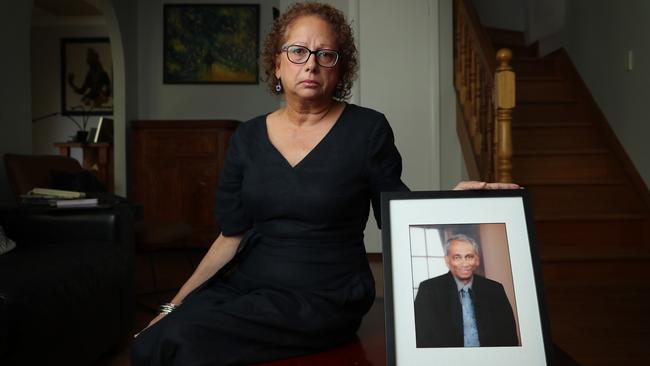
Shockwaves after daughter lures her dad to a violent death
It’s been 13 years since Di Bonarius’s sister shot their beloved father dead after stealing a gun from a pistol club, but the traumatic aftershocks of the violence are still shaking her family.
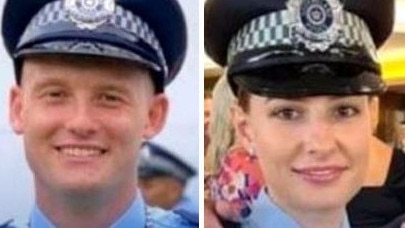
Inquest costs met for cops’ families
The families of the two murdered officers will have union-funded lawyers to represent them at the inquest, as one family expresses concern about some actions of Queensland police.
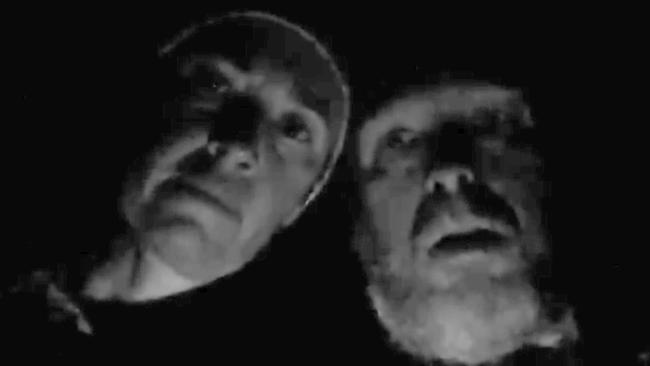
Christian extremist terror hit not enough to deliver gun register
Nearly a year after constables Matthew Arnold and Rachel McCrow and good Samaritan Alan Dare were gunned down at Wieambilla, bureaucratic inertia and a fight over funding has stalled the process.
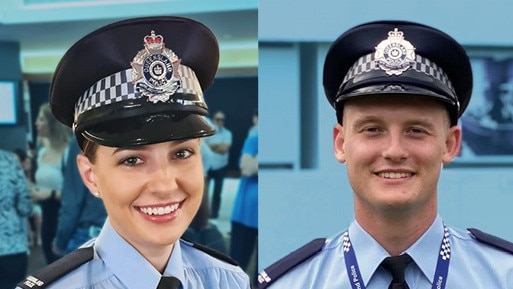
Young cop’s execution caught on body cam
Sniper’s lairs, battery-powered security cameras, and the cold-blooded execution of a young constable captured by her own body-worn camera: what really happened during the bloody Wieambilla ambush.
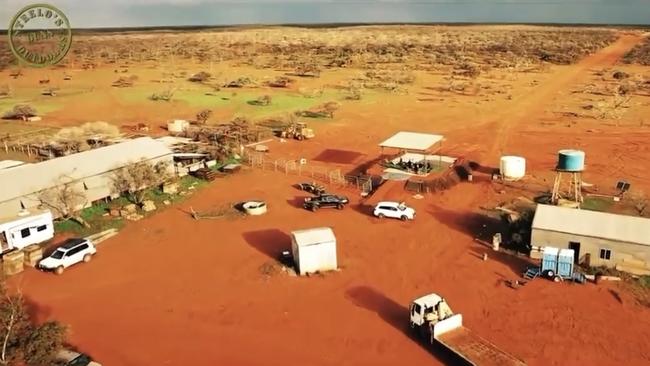
New laws were a killshot for Ella Valla station. Then Andrew Forrest swooped
For years, tourists would come to Shane Aylmore’s remote cattle property in WA, paying huge sums to fire enormous long-range weapons into the outback. In just one night, it was game over.
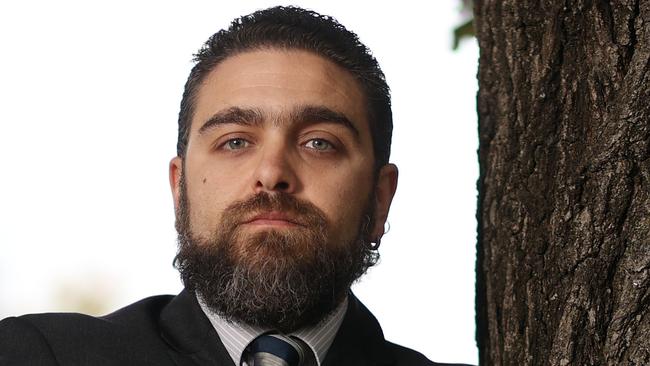
Gun, data reforms ‘would save cops’ lives’
‘Real time’ information would enable police to do a proper risk assessment before entering a property.
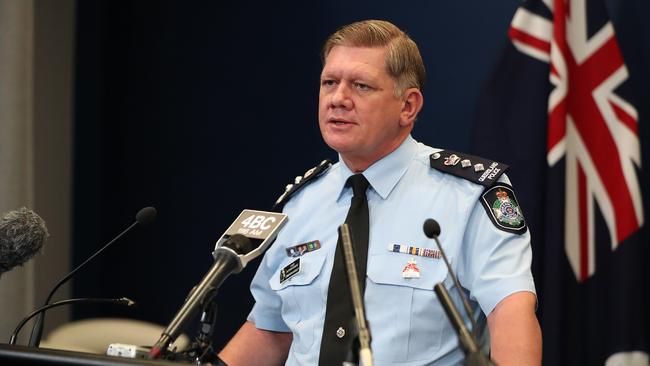
Outdated registry ‘is a threat to police’
Queensland’s firearms registry is still not fit-for-purpose and is putting police officers and the general public at risk, nearly three years after a warning from the auditor-general.
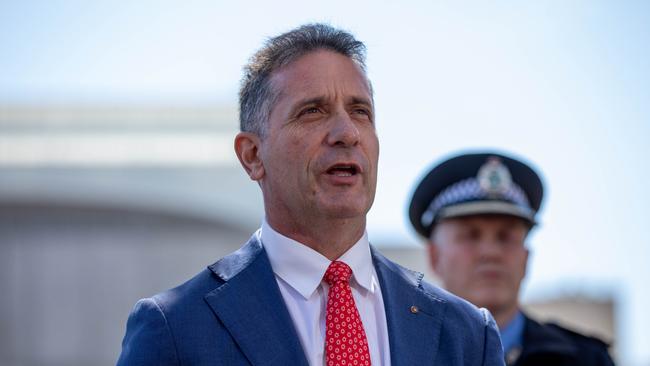
Up to 130,000 WA guns off the street
WA will become the first Australian jurisdiction to limit how many firearms a shooter can legally own, as the Labor government wants to slash the number of legal guns by about one-third.
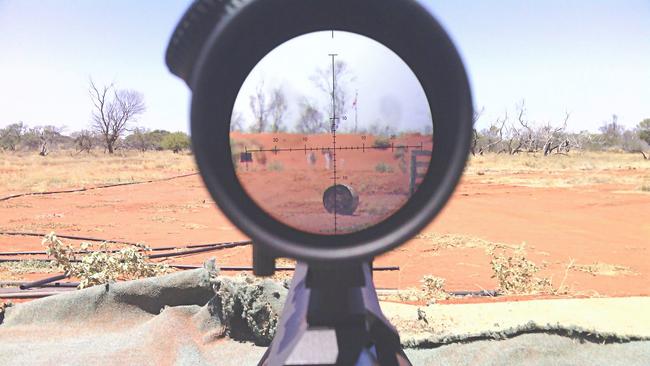
Federation fail: Patchwork of laws keep sniper rifles on our streets
High-powered .50 cal guns banned for being too dangerous by some states are legal over the border, as states and territories fail to harmonise gun laws or agree to a national gun registry.
The station was purchased by Andrew Forrest’s Fortescue Future Industries in January last year, with Dr Forrest intending to use it as a green energy hub.
Station owner Shane Aylmore sold the 100,000ha property on the proviso he could continue to operate the range and the shooting business. The energy infrastructure is yet to be developed, and the shooting business evaporated in July when the government ban came into place.
Mr Aylmore, who has been on Ella Valla since 2010 and with his wife has raised three children there, now operates a small-scale pest control and firearms business, training employees from mining and other remote companies how to humanely and safely eradicate vermin.
“They shut us down in one night,’’ he said of the loss of his shooting tourism enterprise, which had taken eight years to develop, and seen Ella Valla operating at maximum capacity.
“I don’t have a business anymore. The idea was the business supported everything.’’
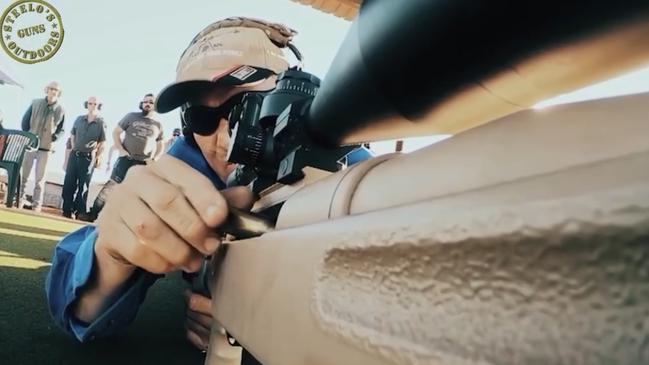
WA Police Minister Paul Papalia said he was “unashamed” about prioritising public and police safety over the desire of people to shoot big guns.
Mr Papalia told The Australian he had enacted the prohibition at the request of police, to remove a range of very high-powered firearms and cartridges from use in WA. “My challenge is to provide the greatest possible level of safety for the public and for the police in Western Australia,” he said.
Mr Aylmore said police never liked his operation, despite regular audits he said consistently showed everything was in order.
He said the guns were permitted in Australia for use by recreational shooters under clause 13 of the 1996 National Firearms Agreement, which regulates firearms used for sports shooting in high-level competitions including the Commonwealth and Olympic Games, and world championships events.
“We were going to get a world championships,’’ he said, referring to the King of 2 Miles international sporting event, where shooters compete in ultra-long-range shooting. He had been negotiating to bring the event to Australia and said it would have brought a much-needed tourism boost to the district. “The King of the 2 Miles involved 70 teams of three people each, and their family and friends,’’ he said.
Mr Aylmore said he had been fighting with the government and WA police “every step of the way’’ and had been told shooting with the .50s “wasn’t a sport’.’
The point became moot once the guns were banned on July 1.
Mr Aylmore sold his 10 guns to WA police under a buyback scheme, for what he says was an undervalued price. Among the guns he handed back were two .50 BMGs, rifles that take rounds, known as .50 Browning Machine Guns. BMG cartridges were first designed for use in World War I. They have since been used by militaries as anti-materiel guns, deployed against light armoured vehicles and even aircraft.
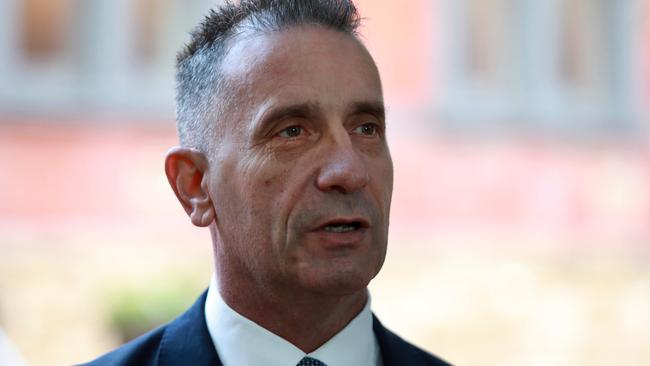
One of Mr Aylmore’s guns was sold to a person on the east coast, where the guns are still legal.
WA’s ban comes in the context of a renewed push by the states and territories to revive the stalled national firearms registry, agreed on 27 years ago, after the Port Arthur massacre in Tasmania, but never implemented.
Mr Aylmore, a former WA state fisheries officer, said he believed in principle in a national registry.
“The National Firearms Agreement is a good thing. We should have a national firearms licence recognised across the states and they (state-based gun registries) should all be talking to each other,’’ he said.
However, he objected to the large-calibre guns being banned, saying “there has never been an offence committed in Australia with a .50 calibre gun”.
“They’re 1.5m long, weigh 25kg, and they’re expensive,’’ he said. “They’re designed to be shot lying down. The idea that a bad guy would get a .50 and shoot police with it is just dumb.’’
Ella Valla, like other shooting stations, had also been selling letters of authority for $220 to help would-be shooters obtain a permit to shoot .50-calibre weapons on their property.
WA intends to make it illegal for properties to sell letters of authority, and there will be limits placed on how many of the authorisations each farm can supply.
Under the system, it was discovered about 15,825 letters had been supplied by only eight properties, including 4720 from a single property, understood to be Ella Valla.
Mr Papalia said the system would be reformed to “stop the rorting,” to link the number of authorised shooters with the number of vermin in the area.
“For instance, there is a little property near Margaret River, which was the size of a small dairy farm, about 100 acres, and it had issued 2200 letters. I don’t think there’s 2200 shooters going there to shoot rabbits,” Mr Papalia said.

More Coverage
Add your comment to this story
To join the conversation, please log in. Don't have an account? Register
Join the conversation, you are commenting as Logout